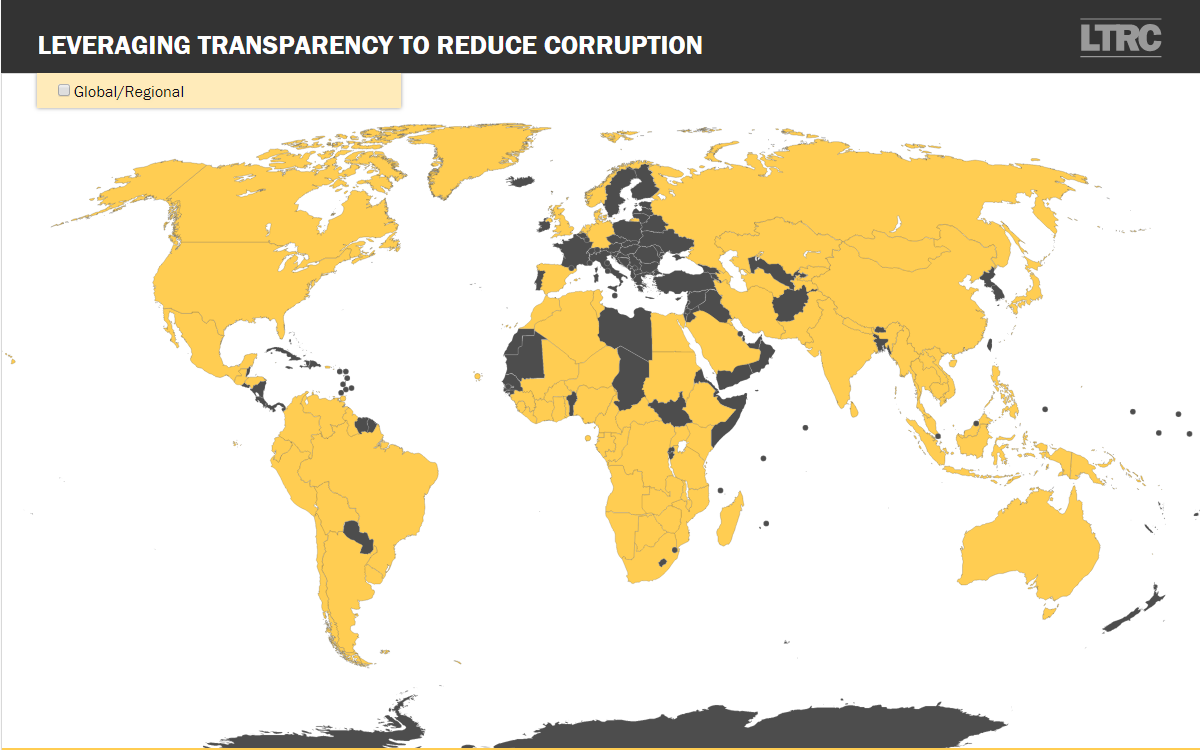
Annotated Bibliography: Transparency, Accountability and Participation Along the Natural Resource Value Chain
The Leveraging Transparency to Reduce Corruption project (LTRC)—a five-year initiative led by the Brookings Institution and supported by the Natural Resource Governance Institute and Results for Development—is pleased to share an annotated bibliography (AB) of more than 150 books, papers, tools/datasets and other resources addressing transparency, accountability, and participation (TAP) efforts along the natural resource value chain. We have also included work that addresses the contextual factors that enable or constrain the effectiveness of TAP approaches. We hope that the AB and related materials described below will serve as a helpful resource for practitioners, policymakers, researchers, donors, and other stakeholders interested in this field. (The AB is available as a PDF here.)

The AB and this page hosted on the Brookings Institution website will be periodically updated to include additional resources and features based upon our ongoing work, as well as in response to suggestions from users. Please use this contact to suggest additional resources or features, or to provide other comments.
Authors

Daniel Kaufmann
President Emeritus